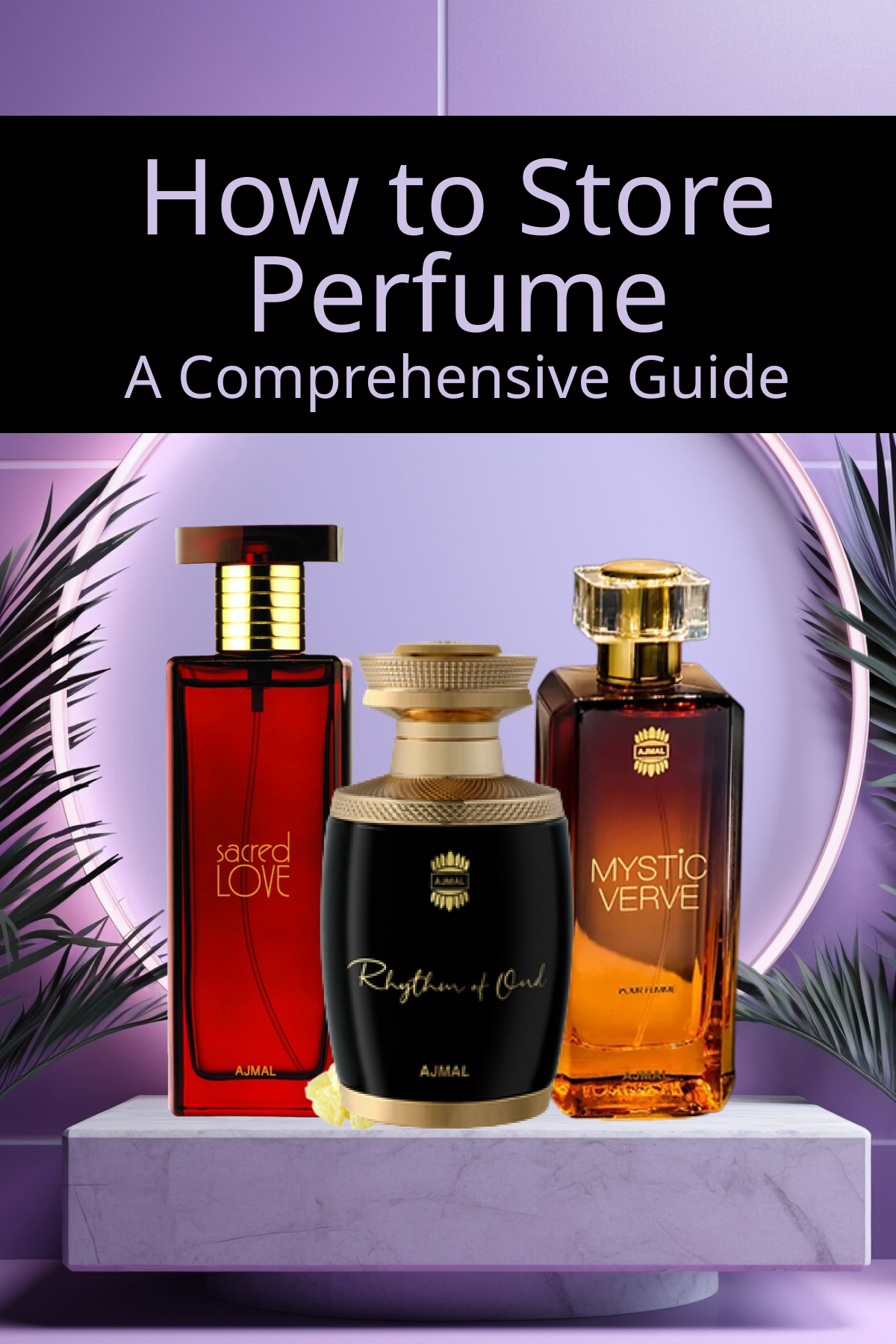Perfumes are delicate blends of aromatic chemicals that can lose their power and character if not preserved correctly. Whether you have a collection of high-end fragrances or a few beloved smells, appropriate storage is essential for preserving their quality and longevity. In this detailed guide, we’ll look at the best techniques for storing perfume, including what to avoid and how to keep your perfumes as fresh and vibrant as the day you bought it.
Importance of Proper Perfume Storage
Perfume, including famous chypre perfumes, is a complicated blend of alcohol, water, essential oils, and aromatic chemicals. These components may be susceptible to environmental conditions such as light, temperature, and humidity. Improper storage can degrade these components, resulting in a loss of smell quality, shorter lifespan, and even an unpleasant stench.
Key Factors That Influence Perfume Quality
1. Light: Direct sunlight can break down perfume molecules, changing the aroma and lowering its intensity.
2. Temperature: Extreme temperatures, both hot and cold, can impair the stability of aroma compounds.
3. Air: Exposure to air can cause oxidation, altering the chemical composition of the scent.
4. Humidity: High humidity may inject moisture into the perfume, affecting its makeup and aroma.
Best Practices for Storing Perfume
1. Store in a cool and dark place.
A cold, dark environment is good for storing your scent. Avoid places that receive direct sunlight or have variable temperatures. A drawer, closet, or cabinet away from heat sources is ideal for storing scents.
2. Keep the bottles upright.
Always store perfume bottles upright to keep the liquid from coming into extended contact with the bottle’s stopper or spray mechanism. This maintains the perfume’s integrity and prevents leakage.
3. Use the original packaging.
Perfume bottles are frequently packaged in attractively designed boxes that serve both as decorative elements and as protective barriers. Keeping your perfume in its original packaging protects it against light and temperature fluctuations. If you no longer have the box, cover the bottle with a soft cloth to protect it from light exposure.
4: Avoid Temperature Fluctuations.
Perfumes are best kept at a steady, moderate temperature. Avoid placing them in locations with fluctuating temperatures, such as near windows, radiators, or air conditioning vents. Extreme temperature changes can cause the perfume to decay more quickly.
5. Reduce exposure to air.
Whenever possible, keep the perfume bottle well sealed to reduce air exposure. This helps to avoid oxidation, which might affect the aroma, especially for green chypre perfumes, as their natural, earthy notes can be more susceptible to changes. If your perfume has a removable cap, be sure it’s properly replaced after each usage.
6. Avoid high humidity areas.
High humidity might impair the quality of your scent. Avoid keeping scents in bathrooms or other humid areas. Instead, choose a dry location with minimal dampness.
Special Storage Ideas for Large Collections
Rotating your collection.
If you have a large perfume collection, you should try rotating them on a regular basis. This ensures that you use and enjoy all of your scents before they decay. Keeping track of when you acquired each scent might help you monitor its usage and storage time.
Using a Fragrant Refrigerator
For avid perfume fans, a specialized fragrance refrigerator can be a great investment. These little appliances are intended to maintain a consistent, chilly temperature, which is great for storing perfume. They are especially handy if you live in a climate with high temperature fluctuations.
Decanting for Travel
When traveling, it’s preferable to leave full-size bottles at home. Instead, transfer a small amount of your favorite perfume to a travel-sized atomizer. This not only protects the majority of your fragrance collection from the stresses of travel, but it also allows you to enjoy your favorite scents while on the go.
Signs Your Perfume Has Gone Bad.
Even with your best efforts, scents can become sour over time. Here are some symptoms to watch out for:
Change in Color: A considerable change in color may signal that the scent has begun to oxidize or decay.
Off aroma: If the aroma smells different from when you first purchased it, it may have begun to break down.
Separation of Ingredients: If you see any separation or sediment in the bottle, it means that the perfume’s components are no longer well-mixed.
Expiration Date: Some perfumes do have an expiration date. Check the packaging for any signs of shelf life.
Conclusion:
Proper storage is vital for maintaining the quality and life of your perfumes. Following these best practices will guarantee that your favorite perfumes stay fresh, vivid, and pleasurable for as long as possible. Remember to store your perfumes in a cool, dark place, away from air and humidity, and handle them carefully. With the proper storage practices, you can get the most out of your perfume collection and enjoy your favorite scents for years to come to give best of perfumes of all times.













